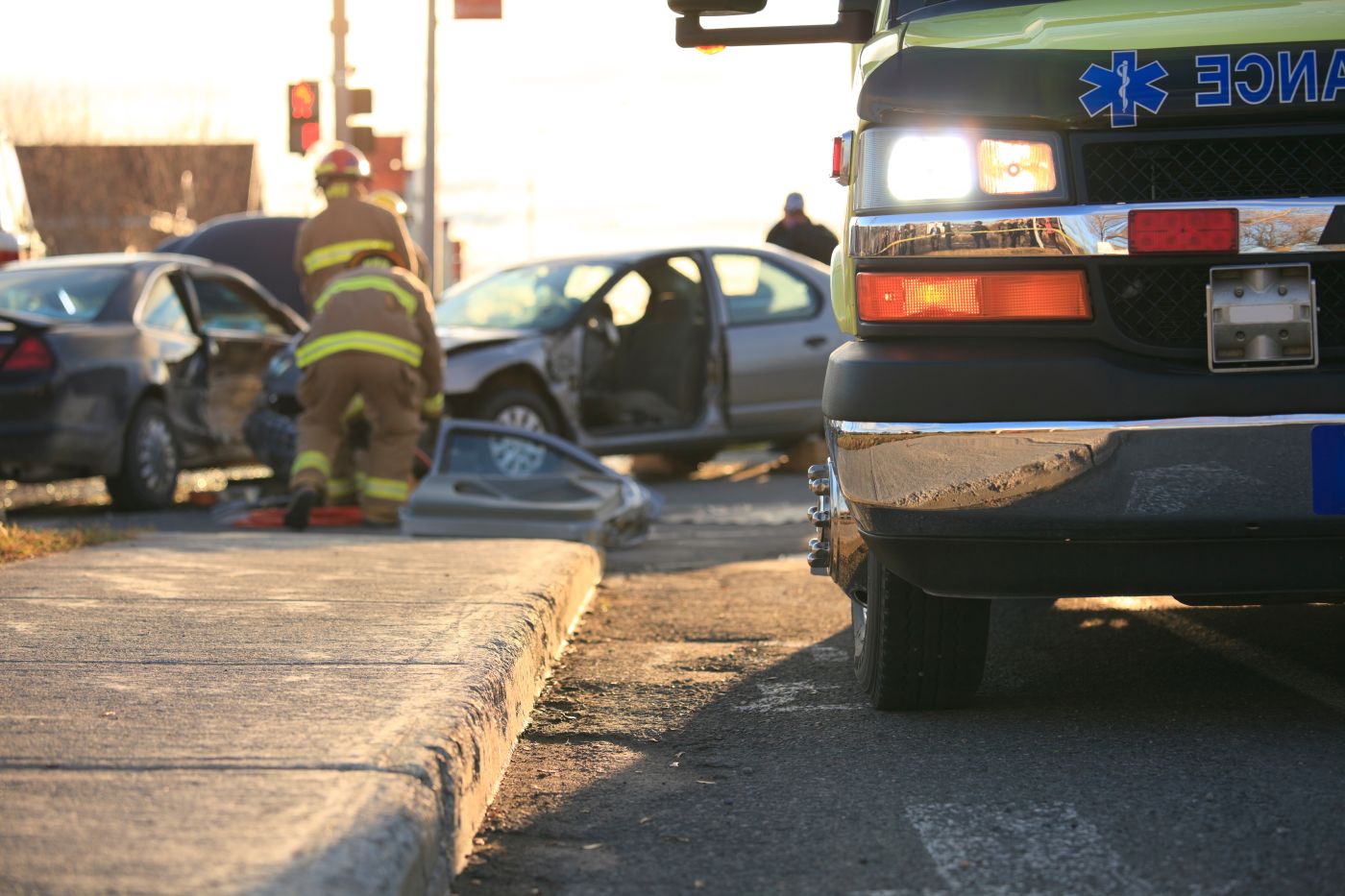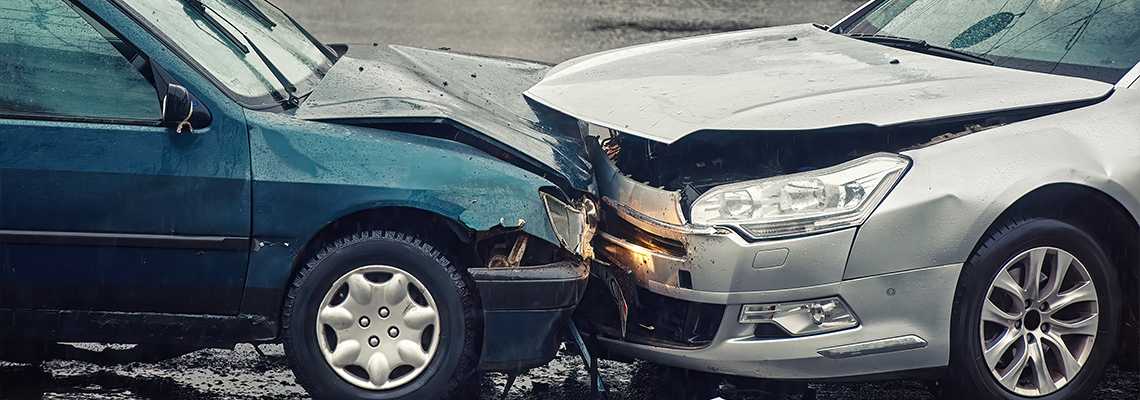
Losing a loved one in a car accident is one of the most devastating experiences a family can go through. Along with the emotional toll, families are often left with unexpected financial burdens and unanswered questions.
When the accident was caused by another party's careless or reckless behavior, a wrongful death claim may provide a path toward justice and compensation. A skilled wrongful death attorney can help guide you through this difficult legal process.
At The Tourigny Law Firm LLC in Kansas City, Missouri, we understand how overwhelming it can be to face legal matters while grieving. Our firm is here to help families fight for accountability, answers, and rightful compensation in the aftermath of a fatal crash.
Read on for more information about how wrongful death claims work and how we can assist you in seeking justice.
What Qualifies as a Wrongful Death in a Car Accident
A wrongful death occurs when someone is killed due to another person or entity's negligence or misconduct. In the context of a car accident, this can involve many scenarios, such as drunk driving, speeding, distracted driving, or even faulty vehicle parts.
To bring a successful wrongful death claim, surviving family members must show that the defendant had a duty of care, breached that duty through negligent actions, and directly caused the death. This legal standard assures that only cases with clear evidence of fault are eligible for compensation.
Once fault is established, the legal process turns to who is entitled to file and what types of damages can be pursued. These questions are critical to the overall outcome of a case.
Who Can File a Wrongful Death Claim
Wrongful death laws vary by state, but most allow immediate family members such as spouses, children, and parents of the deceased to file a claim. In some situations, other dependents or legal representatives of the estate may also have standing.
The court will determine who is the appropriate party to bring the claim, often based on who has suffered the most substantial loss. If there are multiple qualifying individuals, they may need to join the claim together or decide who will lead it on behalf of all survivors.
Understanding who can file is essential, but just as important is knowing the strict deadlines involved in bringing a claim, which leads us into the next topic.
Time Limits for Filing a Claim
Each state has a statute of limitations that limits the time you have to file a wrongful death claim. This window typically ranges from one to three years from the date of the victim's death.
Missing this deadline could permanently bar your right to seek compensation. For this reason, it’s important to consult with a wrongful death attorney as soon as possible. An attorney can help make sure that all legal documents are filed accurately and on time.
Timeliness is key, but equally important is building a strong foundation of evidence to support your claim.
Proving Negligence in a Wrongful Death Case
To hold someone legally responsible for a fatal crash, you must prove negligence. This involves demonstrating that the at-fault party failed to act with reasonable care and that this failure directly led to your loved one’s death.
Common types of negligence in car accidents include:
Distracted driving: Using a phone, eating, or otherwise not paying attention to the road
Drunk or impaired driving: Operating a vehicle under the influence of alcohol or drugs
Reckless driving: Speeding, aggressive lane changes, or ignoring traffic laws
Mechanical failure: Accidents caused by faulty brakes, tires, or steering systems
Road hazards: Poorly maintained roads, missing signage, or defective traffic signals
Gathering strong evidence like accident reports, eyewitness statements, and surveillance footage can significantly strengthen your case. Once negligence is proven, the next step is calculating the damages involved.
Types of Compensation Available
In wrongful death claims, compensation can include both economic and non-economic damages. These awards are meant to cover the financial and emotional losses suffered by surviving family members.
Economic damages can include medical bills, funeral expenses, and loss of income or benefits the deceased would have earned. Non-economic damages compensate for loss of companionship, emotional distress, and the impact on the family's well-being.
Calculating fair compensation involves analyzing many factors, which we’ll discuss in the next section.
How Compensation Is Calculated
No two wrongful death cases are exactly the same. The amount of compensation available depends on the deceased's age, income, health, and contributions to the household.
Courts also consider the relationship between the deceased and the claimant. For example, the emotional and financial impact of losing a spouse is often evaluated differently than that of losing a distant relative.
Working with an experienced wrongful death attorney assures that no losses are overlooked and that the full value of the claim is presented. As part of building a strong case, understanding how liability is determined in multi-party accidents is also crucial.
Handling Multi-Vehicle and Shared Fault Accidents
In some fatal car accidents, more than one driver or party may be at fault. These cases require a careful breakdown of each party's share of responsibility.
States follow different legal doctrines to divide liability, such as comparative or contributory negligence. Under comparative negligence, your compensation may be reduced by your loved one’s share of the fault, while under contributory negligence, any fault could bar recovery.
An experienced wrongful death attorney can help manage these complicated situations and make sure that liability is assigned fairly. Knowing this, it’s also helpful to understand the courtroom process if your case goes to trial.
What to Expect During the Legal Process
While some wrongful death cases settle out of court, others may proceed to litigation. The process usually involves several phases, including investigation, filing, discovery, and either settlement negotiations or a trial.
Each phase can take months or even years, depending on the case’s intricacy and court schedules. Having legal counsel makes sure that you're prepared at every stage and can avoid costly procedural missteps.
Before filing a lawsuit, some families benefit from understanding what documentation and records are needed to support their case.
Essential Evidence to Gather
Building a strong wrongful death case relies heavily on evidence. You may need to collect police reports, witness accounts, medical records, autopsy findings, and employment documents.
Personal testimonies from family and friends about the victim's character and contributions can also play a role in proving damages.
Some key documentation to collect includes:
Accident scene photographs: Visual proof of damage, road conditions, and vehicle placement
Witness statements: Observations from people present during or after the crash
Medical records: Documentation of injuries, treatments, and related costs
Funeral and burial expenses: Receipts and invoices
Income records: Pay stubs, tax returns, or employment contracts
Gathering this evidence early on can make a big difference in the outcome of your case. Another way to support your claim is through the use of expert witnesses.
The Impact of Expert Witnesses
Expert witnesses can provide clarity and credibility to complicated aspects of your case. These professionals may include accident reconstructionists, medical experts, or financial analysts.
Their perspectives can help explain how the crash occurred, the extent of the victim’s injuries, and the long-term financial impact on surviving family members. Judges and juries often place significant weight on expert testimony.
Adding these voices to your case can bolster your position and counter arguments from the defense. Beyond expert input, the emotional toll of wrongful death is another critical aspect of every case.
Emotional and Psychological Impact on Families
The death of a loved one causes immeasurable grief, often accompanied by anxiety, depression, or trauma. In addition to financial hardship, families may struggle to cope with daily life without their loved one’s support.
These emotional damages are recognized in wrongful death claims, even if they can be difficult to quantify. Courts consider the nature of the relationship and the depth of loss when evaluating non-economic damages.
Highlighting the emotional toll of a wrongful death helps humanize the legal claim and can be a powerful part of the case.
Settling a Wrongful Death Claim
Settlements offer a faster and less adversarial resolution to a wrongful death case. They often occur after initial evidence has been presented but before trial begins. Settlements can provide financial relief while avoiding the stress of a court battle.
However, it’s crucial not to accept an offer without reviewing it with a wrongful death attorney. Insurers may push for quick resolutions that don’t reflect the full value of your claim.
A well-negotiated settlement can honor your loved one’s legacy and provide long-term security.
Why It’s Important to Act Quickly
Time isn’t on your side when it comes to wrongful death claims. Beyond legal deadlines, valuable evidence can be lost or harder to gather as time passes.
Quick action allows your attorney to secure records, speak to witnesses, and begin building your case before memories fade or documents disappear. Delaying legal help could compromise your ability to seek justice.
Getting in touch with an attorney soon after the accident gives you the best chance to recover and move forward.
Talk to a Wrongful Death Attorney Today
At The Tourigny Law Firm LLC, we’re committed to helping families hold negligent parties accountable and seek the compensation they’re entitled to. Our firm serves clients throughout Kansas and Missouri. Contact us today to speak with a wrongful death attorney about your case and take the first step toward justice.



